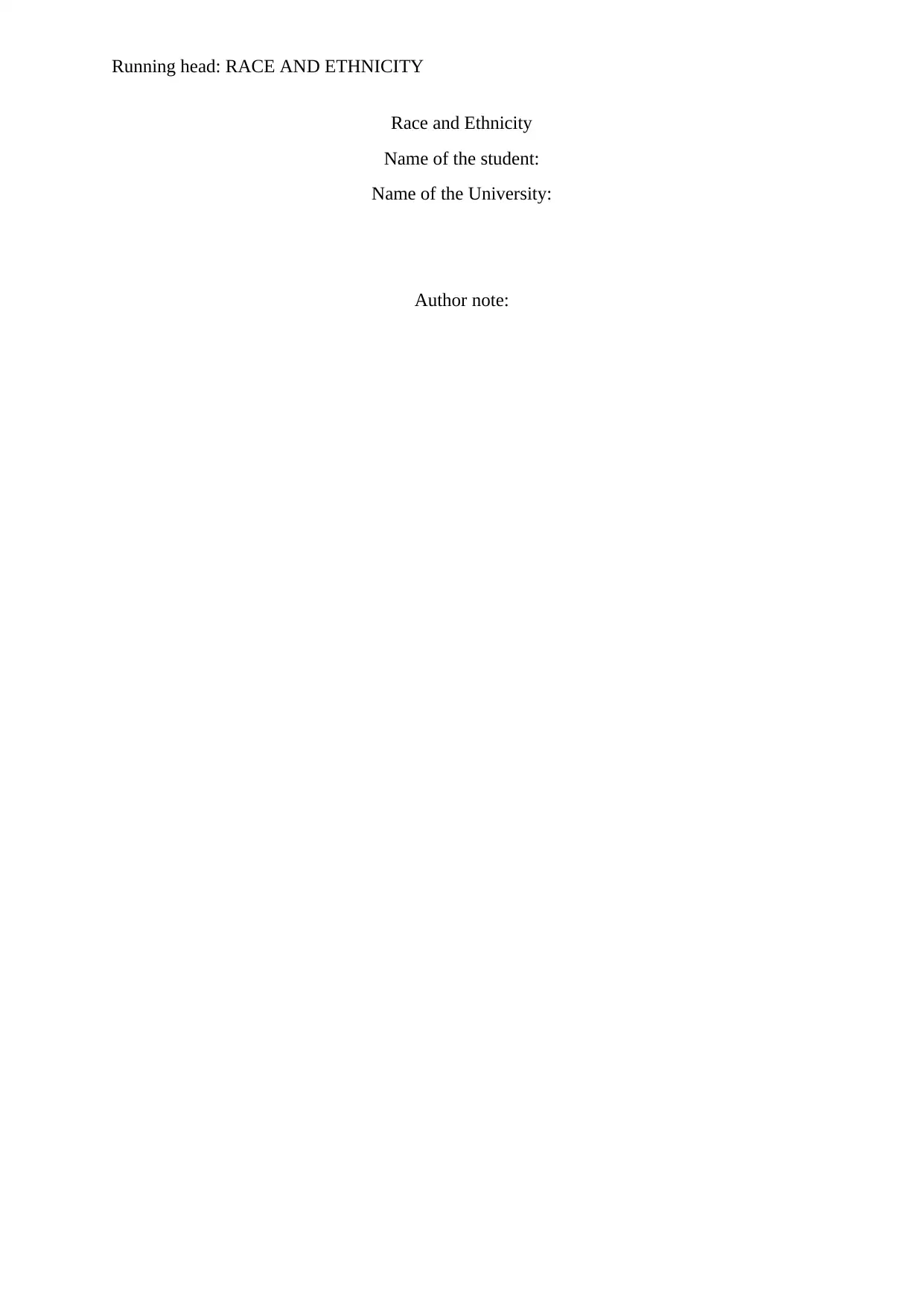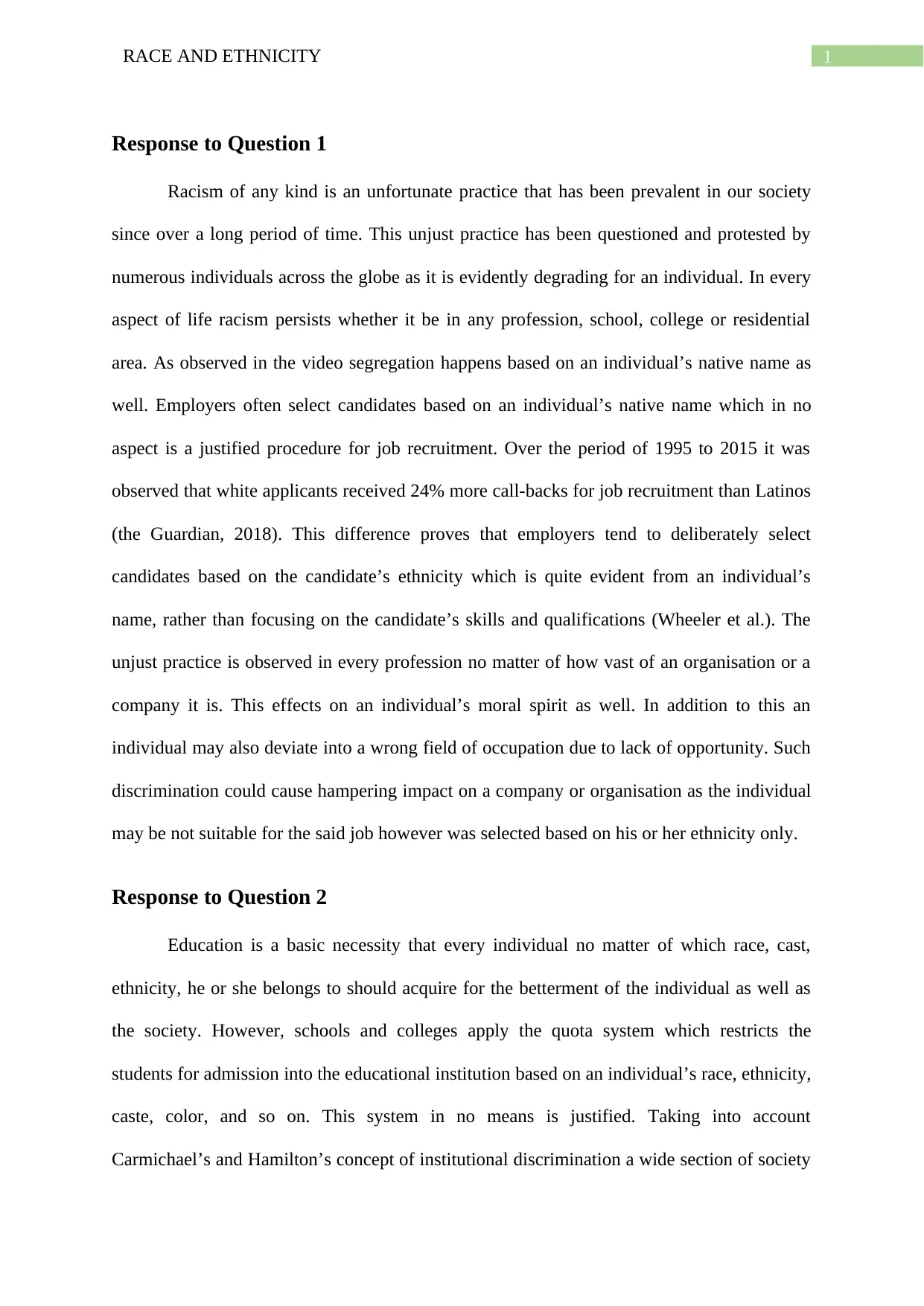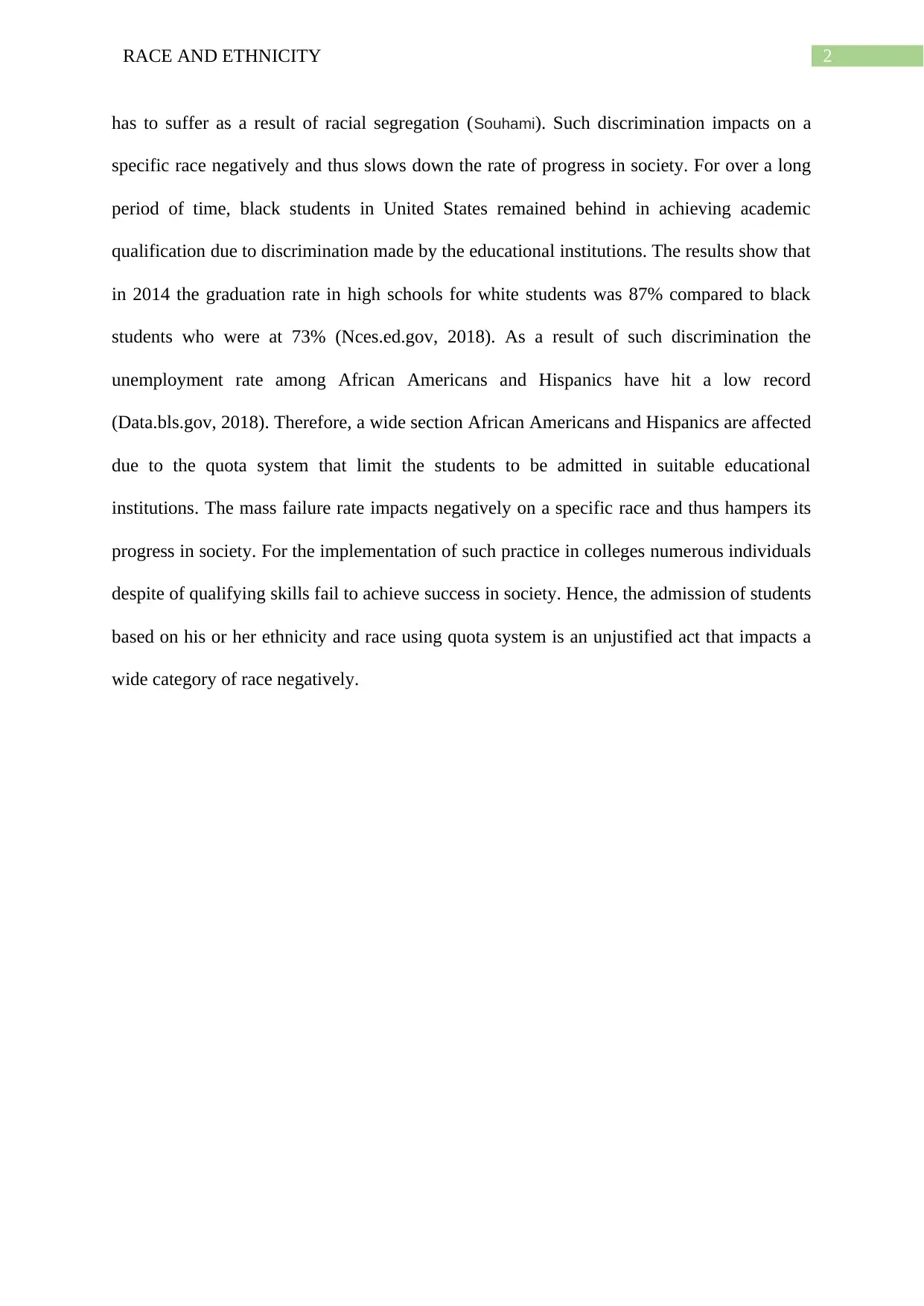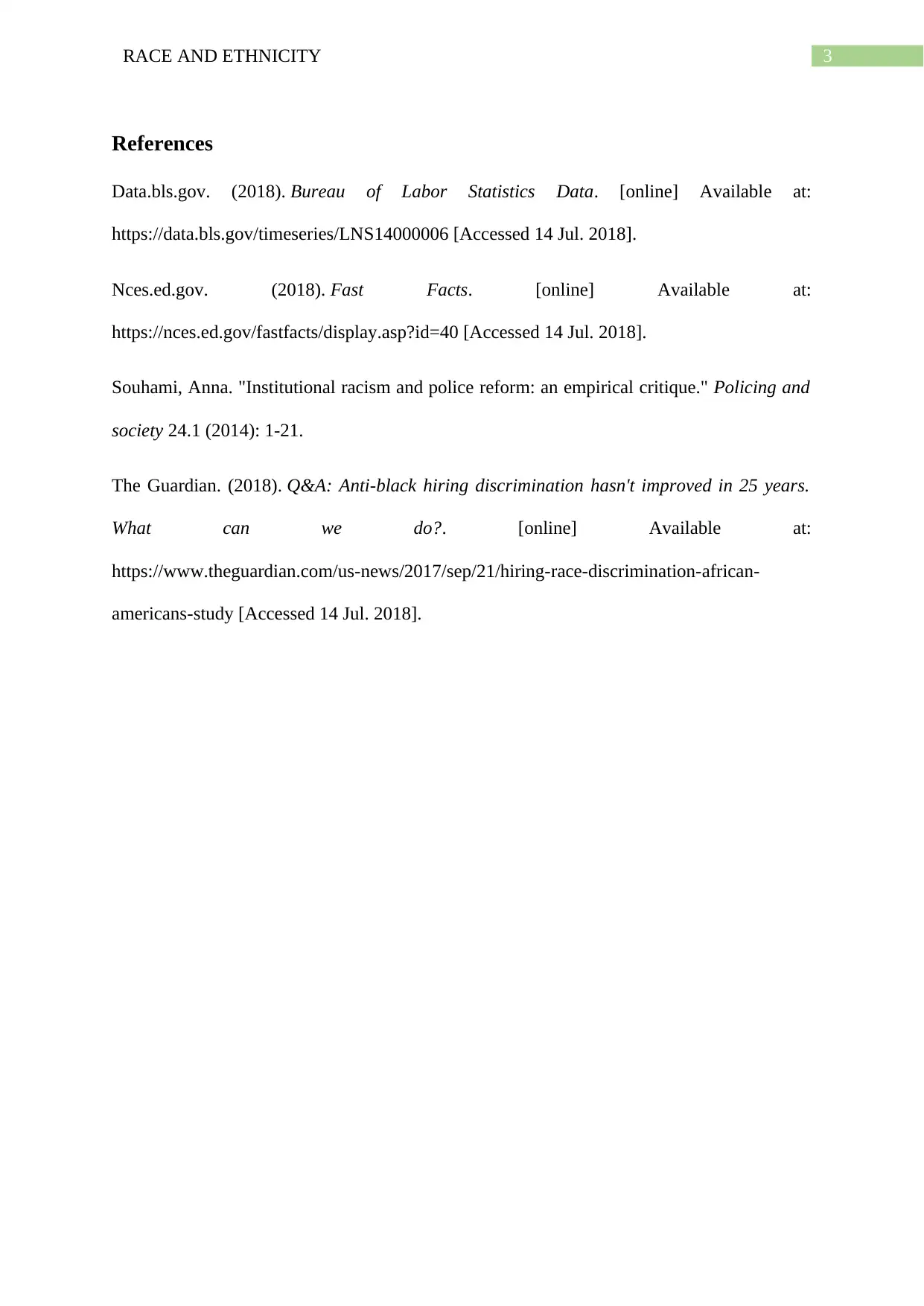Race and Ethnicity: A Study of Racism, Segregation, and Education
VerifiedAdded on 2023/06/10
|4
|758
|372
Essay
AI Summary
This essay examines the pervasive issues of race and ethnicity, focusing on the detrimental effects of racism and segregation in various aspects of life, including employment and education. It highlights how discriminatory practices, such as biased hiring processes based on native names and the quota system in education, negatively impact individuals and perpetuate inequality. The essay references statistical data to illustrate disparities in job call-backs and graduation rates, emphasizing the long-term consequences of institutional discrimination on specific racial groups. Ultimately, it argues that such practices hinder societal progress and calls for a more equitable approach that values skills and qualifications over ethnicity or race. Desklib provides access to similar essays and study resources for students.
1 out of 4











![[object Object]](/_next/static/media/star-bottom.7253800d.svg)